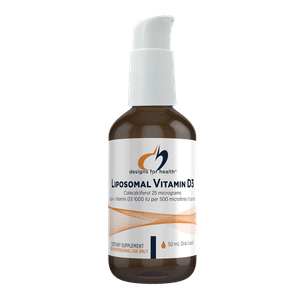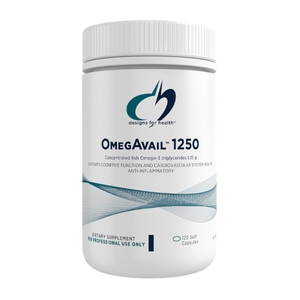
Could your Joint Pain be Rheumatoid Arthritis?
Did you know an estimated 456,000 Australians, that's 1.9% of the population, is living with rheumatoid arthritis (1). But how do we know if your joint pain is simply due to wear and tear or if you, like many other Australians, are suffering from the autoimmune condition, rheumatoid arthritis?
What is Rheumatoid Arthritis?
Rheumatoid arthritis or RA as it is an autoimmune condition that affects the joints. What’s an autoimmune condition, you ask? It's where the body starts attacking its own tissues. Why would the body do this? Well, there are lots of different theories as to why this might happen.
Our immune system is very sensitive sometimes to environmental toxins, gut-derived toxins, and infections like certain viruses and bacteria, making the immune system misbehave resulting in it thinking its own tissues are a threat that needs to be dealt with (2). For some, they are born with genetics that makes them more susceptible to the condition, but the good news is there is advanced screening that can be done to check your susceptibility. More on that later (3,4).
Who is at risk of developing RA?
Risk factors include (4):
- Females - RA occurs more frequently in females than men, with approximately a 1:3 ratio
- People with disturbed bowel flora balance or bowel infections
- People suffering psychological stresses
- Smokers - smoking is one of the leading risk factors
- Allergy sufferers
- Those with a family history of RA or other autoimmune disorders
How can I tell if it is RA?
So you have joint pain but are unsure of its RA, here is a checklist that your health professional looks at when assessing you (2):
- Do you have morning stiffness around the joints that lasts for more than 30 minutes?
- Do you have tenderness and swelling of three or more joints that have been present for the last 6 weeks?
- Do your symptoms occur in both your hands and your feet
- Have you a positive blood test for rheumatoid factor
If you answered yes to any of the above questions then it may be worth a visit to your health professional.
Early Intervention
If you have a family history of RA, listen up. Did you know that markers can be found in your blood up to 10 years before symptoms start showing (5,6)? That means that if detected early, we can delay, or in some cases even prevent, the onset of the disease (7).
The tests to ask your healthcare practitioner about are rheumatoid factor and/or anti-CCP (anti-cyclic-citrullinated peptide). These simple blood tests could rule out if you are at risk of developing RA (2).
Treatment
If you are one of the many Australians who have been diagnosed with RA, there is a lot that can be done to assist you. Firstly, ensure you are aligned with a practitioner who treats RA in a holistic/functional approach; that is, a practitioner that looks at all the body systems and not just deals with the joint pain and inflammation.
Some of the things that a holistic/functional practitioner may do for RA (2,4):
- Look at gut flora to see if it is out of balance
- Look at methylation and see how well you are functioning biochemically
- Address your detoxification pathways
- Reduce pain and inflammation
- Support joint integrity and mobility
- Assess your immune system response
- Support your stress response
- Manage your diet and assess your nutritional status
- Check your lifestyle for anything that can be improved
Some of the tests they may run
- Blood test for Rheumatoid factor
- Stool analysis - like the GI Map
- Blood Chemistry
- Inflammatory markers
- Methylation panel
- Genetic testing
Diet
There is a lot to be said about the power of nutrition and by simply adding in some of the good stuff and removing the not so good stuff a lot of progress can be made. This is particularly true with autoimmune conditions. Your healthcare practitioner may recommend changes to your diet which will help to increase your nutrient intake and remove reactive or allergenic foods, which will help your immune system work better.
- Remove dairy and/or gluten
- Stop eating processed foods - bye-bye packaged foods!
- Eat lots of fresh colourful foods - berries, fruits and vegetables
- Include anti-inflammatory foods such as cold-water fish, berries, ginger, olive oil, turmeric
- Eat pre and probiotic-rich foods like fermented foods and vegetables
Nutritional and herbal medicines
Your healthcare professional may recommend you take specific supplements or herbal medicines to help your condition.
There are many specific nutritional supplements that can be of great benefit, from digestive enzymes to omega 3 fatty acids to Vitamin D; they each have an important and unique role to play in the treatment of RA (2).
When it comes to herbal medicines, there are some beautiful anti-inflammatory, pain-relieving herbs that are widely used in the treatment of RA. Herbs for digestion, immune system support and stress support are also particularly helpful.
Lifestyle
For anyone with RA, keeping the body active and moving is essential. Light exercise like yoga, tai chi, swimming can increase your range of movement and help strengthen supporting muscles and joints.
The other consideration is stress which can really exacerbate RA symptoms, so keeping stress to a minimum is helpful. Try meditation, yoga nidra, or deep breathing to reduce stress, or ask your health care professional for assistance in this area.
The moral of the story is, if you are at risk, or if you have a family risk of RA, get yourself tested early! Prevention is always better than a cure.
If you have already been diagnosed, seek out the help of a holistic or functional healthcare provider as there is so much that can be done to not only reduce your symptoms but reduce the disease process when a holistic, multi-systems approach is taken (3).





